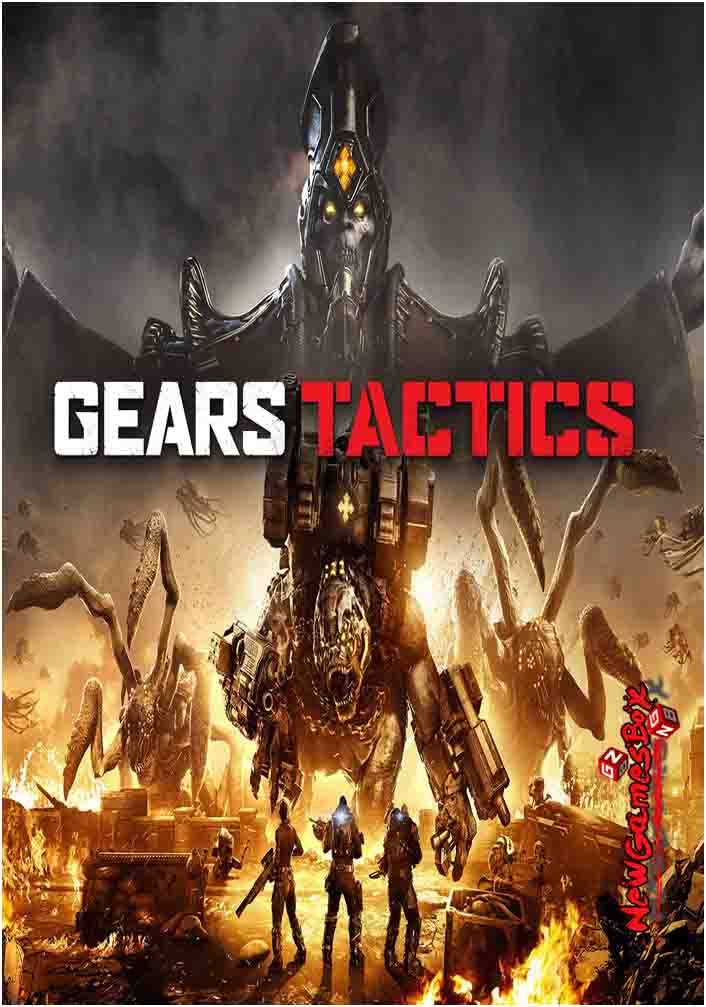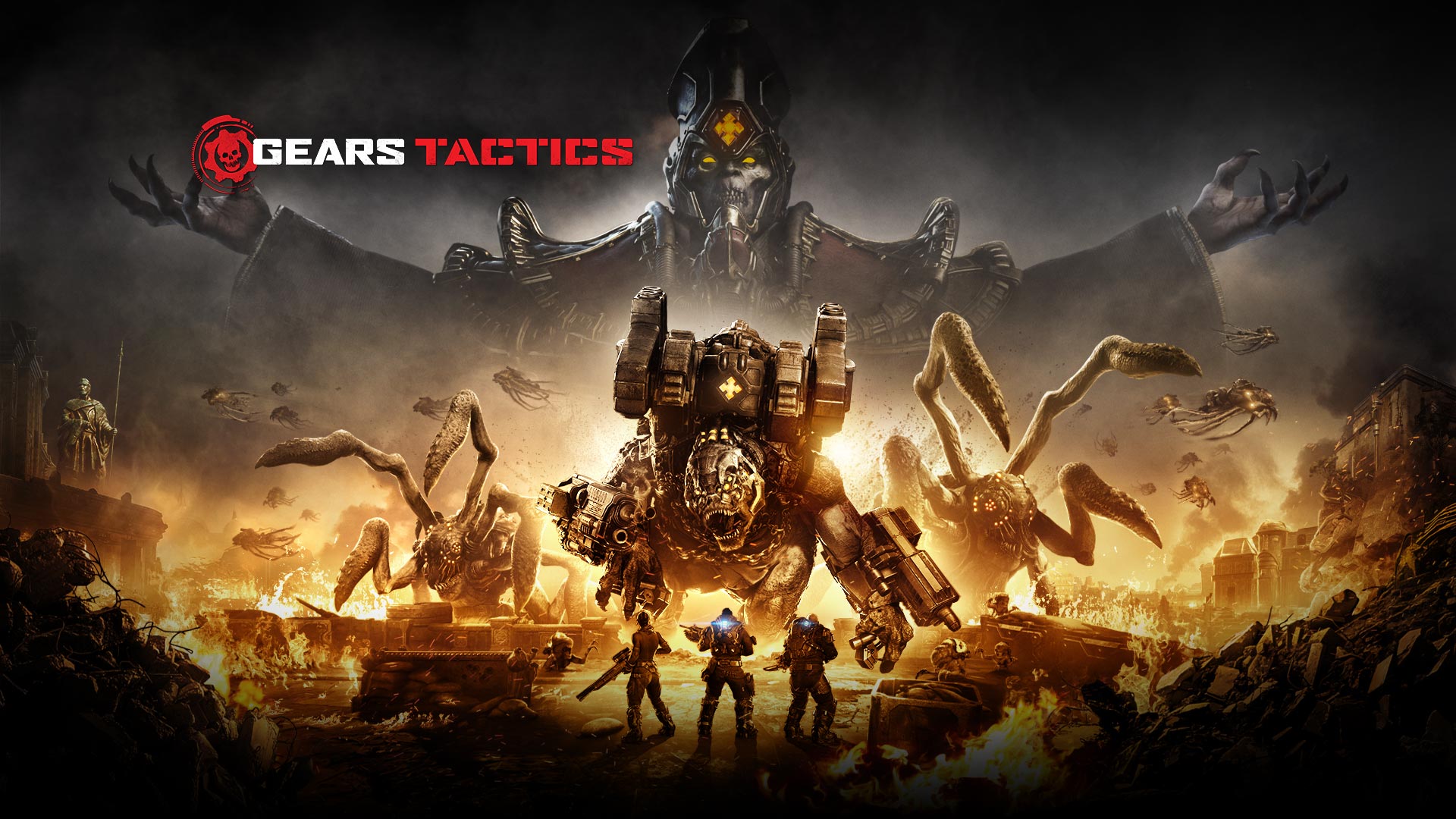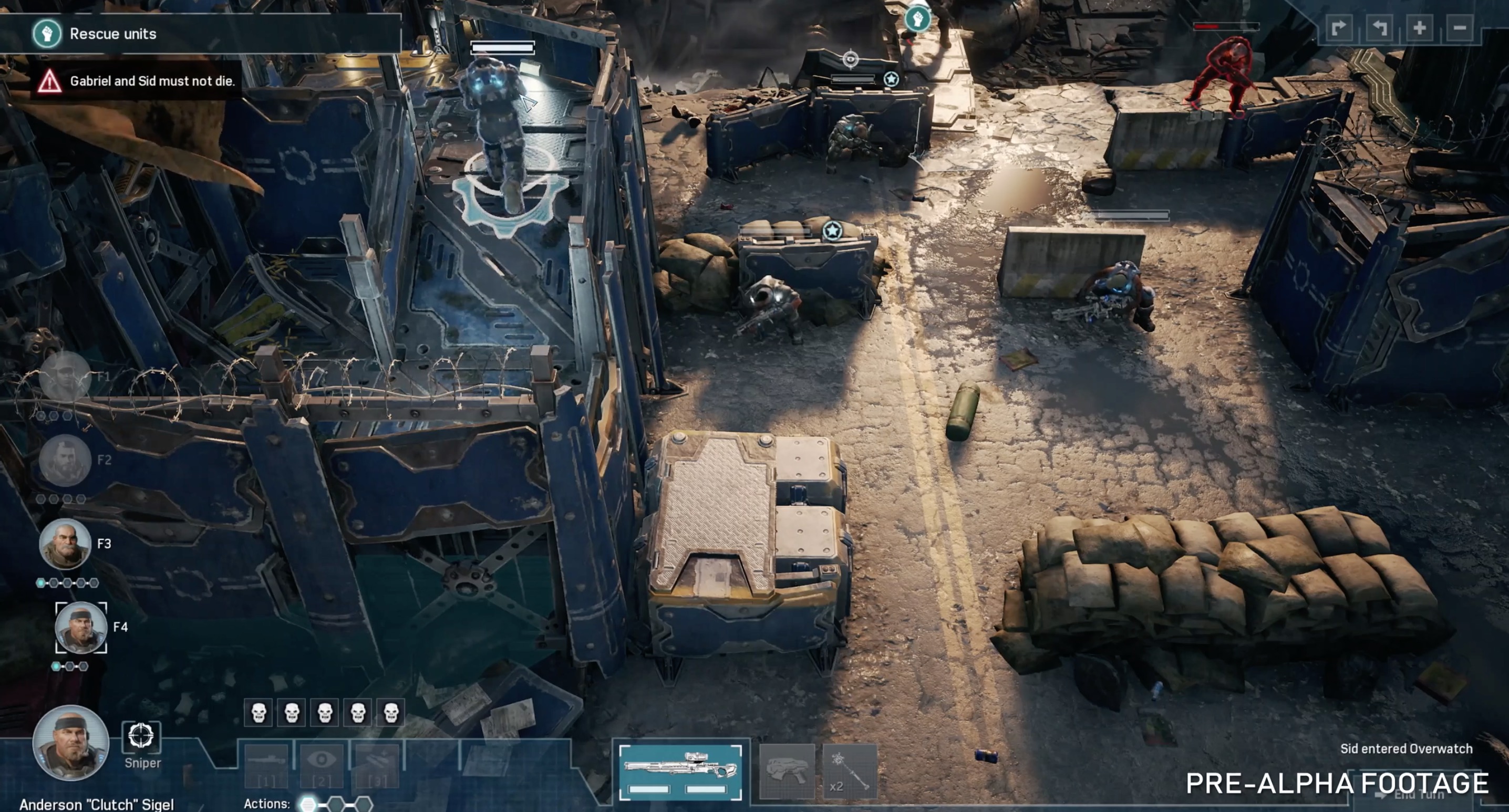


Retro choice: if you like Gears Tactics, you’ll love… A game that, for all its sci-fi excess, delivers a delightfully tuned tactical arena. That story shares its themes of comradeship, loyalty and the mortal need for togetherness in the crucible of combat with much military-themed fiction, but here it’s lightened by the fact your opponents are drooling aliens and not, say, lurking insurgents. Still, it’s an inevitable side effect in a game with an overarching storythat keeps pleasingly in step with one’s progress. There is a purity to chess, Go and other traditional tactical board games that is lost when past performance dictates future capabilities. The better your performance, the greater the chance of future success.Īlong with the obvious benefits to the design comes one drawback: the question of balance. As your tactical nous improves through experience, so your units advance materially.
#Gears tactics post game upgrade
It’s as if you had the ability to upgrade your chess pieces across multiple matches: a victory against a Kasparov might enable you to fit one of your pawns with a helmet that enabled them to evade a lunge from an attacking rook. Yet risk-taking is often rewarded, especially when attempting to complete the mission’s optional objectives, which earn rare pieces of armour or stat-improving attachments for your weapons.Ĭlearing a mission without losing a soldier is immensely satisfying, a feeling compounded by the fact that each individual on your team earns experience points for their performance, unlocking new skills and abilities that, over the course of the campaign, represent the cumulative fruits of your journey. You must adapt to these changes in circumstance with care and caution. Alien reinforcements are dropped from passing transports, rendering a position previously considered safe comprehensively flanked.

Sink holes will open up, capriciously, then spew forth enemies, turn by turn, until you manage to throw a grenade into the opening to close up the ground. Missions evolve in ways that demand flexibility, too. Gears Tactics offers tremendous freedom to its armchair general: you can switch between units before you’ve spent all of their designated points, and in this way build a uniquely individual response to every tactical situation. (And, look, if the idea of dressing your units in, say, bright pink armour seems childish, remember that since at least the 12th century, when a craftsperson carved the Lewis chessmen into walrus ivory, bespoke designs for game pieces have been popular.) Each unit, typically, has three “action points”, which can be spent on moving position, reloading weapons, chainsawing through alien limbs, applying first aid or setting up “overwatch” mode, whereby they cover a sector, firing their gun if anything crosses their line of sight.
#Gears tactics post game series
You take turns with an unseen alien commander to move your units from cover to cover, coordinating attacks, feints and retreats in a series of drawn-out but often exhilarating skirmishes.Ĭlearing a mission without losing a soldier is immensely satisfyingĮach individual in your team has a class – sniper, healer, attacker and so on – a name and a customisable wardrobe. Similarly, here you command a tight squadron of combatants, directing their movements from a bird’s eye perspective above various fields of play. Gears Tactics is a distant descendant of chess and, more overtly, the kind of table-top war games that were played by Prussian generals in the 19th century as a way to practise and refine their tactics on actual battlefields. Still, in Gears Tactics, a spin-off strategy game to Microsoft’s multimillion-selling Gears of War series, the opportunity to take on an invading force of humanoid alien attackers that can be repelled by bullets and teamwork is reassuringly refreshing. Our species is, it turns out, more vulnerable on a molecular rather than a galactic level. When our lives and those of our beloved are threatened by submicroscopic killers, the idea of extraterrestrial body snatchers, triffids or xenomorphs – yes, even the allegorical ones – seems extraneous. One unexpected side effect of the current pandemic has been a plummet in the appeal of alien-related fiction.


 0 kommentar(er)
0 kommentar(er)
